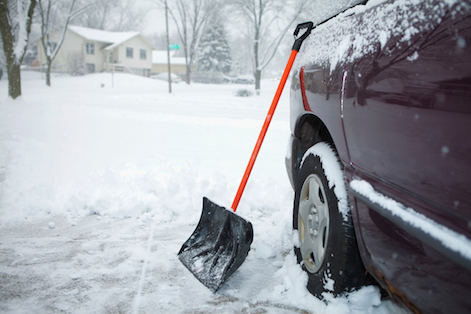Hazards drivers face in the winter months
With Winter fast approaching and the weather already starting to a take a turn for the worse, the hazards you face as a driver will be changing. And figures suggest that accidents increase when the clocks go back in the Autumn and the evenings become darker.
Winter hazards include:
- Dark evenings
- More severe weather conditions
- Low sun
- Changeable driving conditions
There are also reports that driving behaviour on the UK roads has deteriorated with drug driving, speeding, and dangerous driving all hitting record highs in 2021. So, it is apparent that road safety and safer driving behaviours should be at the forefront of our minds as we enter the winter months.
Driving safely this winter
Check your vehicle
Carrying out basic checks of your vehicle to maintain safety are important all year round. But even more so in the winter months as the weather and risks you face change. Check out this guide from the Met Office which looks at using the acronym ‘FORCES’ to help you recall some of the essential winter car checks.
If you drive an HGV you will be carrying out daily checks of your vehicle in order to fulfil your responsibility and duty to ensure that the vehicles you operate are safe to drive and roadworthy. This requirement is no different in the winter.
Adjust your driving behaviour
It will be important to adjust your driving behaviour to the weather conditions. Low sun, surface water due to heavy rain, snow, ice, high winds through to leaves on the road. All these things can make driving challenging. And as such, you will need to adjust your driving behaviour.
Leave extra time to make journeys, slow down when necessary, check your routes before you travel and if needed, avoid travelling if weather warnings suggest it may be unsafe to do so. You’ll also want to make correct use of your lights when driving.
If you manage a fleet of drivers, driver and road safety should remain your priority in poor weather conditions. It may be necessary to adjust your expectations of drivers during these conditions. It will be important to prepare your fleet drivers for driving in winter weather and ensure drivers know they won’t be penalised if it takes them a little longer to reach their destination.
Keep the essentials in your vehicle
You may want to consider having a winter driving kit in your car in case of a breakdown or getting stranded or getting stuck in traffic for long periods.
- A torch and spare batteries
- Sleeping bags or thick blankets
- Bottles of water and snacks (e.g., chocolate, cereal bars, nuts, crisps; anything that will keep energy levels up during a long, cold wait)
- A shovel
- De-icer and an ice scraper
- Extra warm clothes, gloves, hats, footwear, and waterproofs
Keep important documentation with you
It’s not just a winter emergency kit you should be keeping in your vehicle. Think about the documents you should have in your vehicle in case you have an accident or breakdown
Documents it can be beneficial to keep you in your vehicle include
- A copy of your car insurance documents
- Details of who to contact in case of an accident
- Details of your breakdown provider (if you have one)
- You MOT certificate (if applicable)
There may be different requirements if you drive an HGV or larger vehicle. Check on the gov.uk website to make sure you meet these.
It will of course be important to make sure you have the right insurance in place whether you drive your own vehicle, a company vehicle, drive for a living or run a fleet of vehicles. So, if you are reviewing your current insurance or are looking to take out a new policy do get in touch with us at Anthony Jones.


